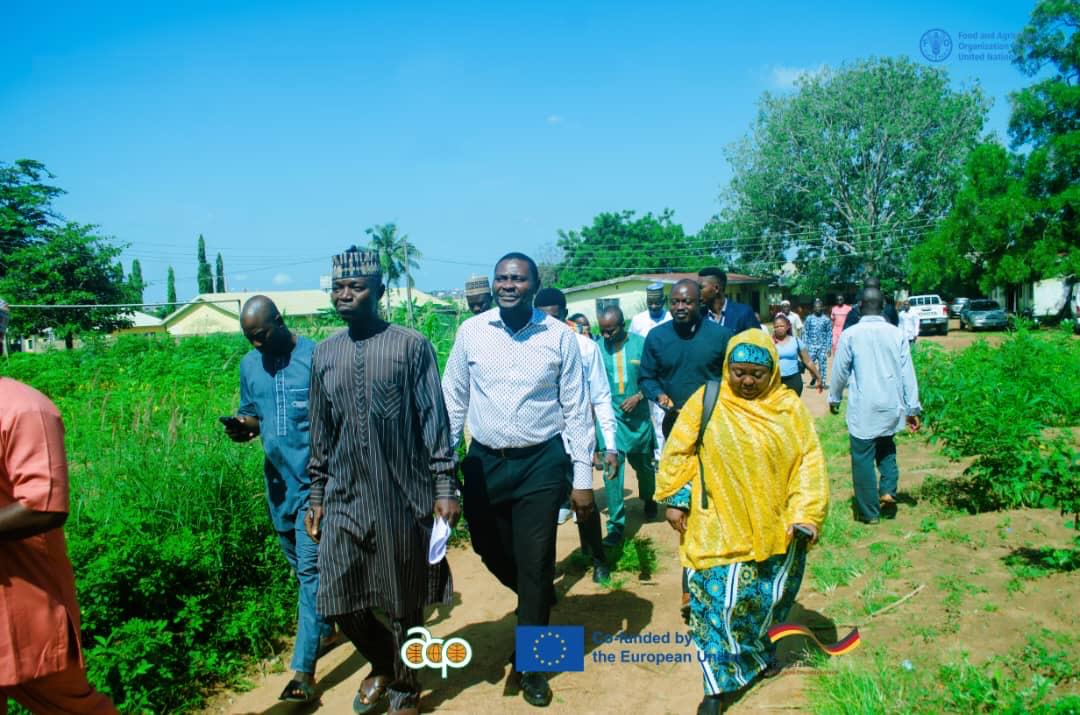
FAO Partners with JDPC Ibadan to Boost Catfish Farmers’ Productivity and Digital Capacity in Kwara and Ogun States
Adekola OJERINDE
In a renewed effort to enhance the productivity, profitability, and digital capacity of catfish farmers across Nigeria, the Food and Agriculture Organization of the United Nations (FAO) has partnered with the Justice, Development and Peace Commission (JDPC) Ibadan as a facilitating organization for Kwara and Ogun States. The initiative, which is part of FAO’s FISH4ACP Project, seeks to promote sustainable aquaculture practices through data-led management and the adoption of innovative technologies among fish farmers.
The project is being implemented across five states—Kano, Delta, Gombe, Kwara, and Ogun—each represented by a cluster comprising 100 catfish farmers. JDPC Ibadan is facilitating activities for the Kwara and Ogun clusters.
To formally launch the program in both states, a series of activities were held between October 13 and 16, 2025, beginning in Kwara State and concluding in Ogun State.
Kwara State Launch: Courtesy Visit and Stakeholder Engagement
The Kwara State phase kicked off on October 13, 2025, with a courtesy visit by representatives of FAO, JDPC Ibadan, and cluster leaders to the State Ministry of Agriculture and Rural Development in Ilorin. The visit provided an avenue to introduce the project to the state government and seek its collaboration and policy support.
Officials of the Ministry expressed appreciation for the initiative, commending FAO and JDPC Ibadan for their continued commitment to agricultural development. They assured the team of the state government’s readiness to provide an enabling environment for the success of the project.
On October 14, the official launch of the program took place at Ajegunle, Ilorin, where catfish farmers drawn from the Kwara cluster gathered for an orientation session. During the event, participants were briefed on the objectives of the project, the expected outcomes, and the training modules that would be implemented over the next one year.
Speaking at the launch, representatives from FAO emphasized the importance of building the digital and managerial capacity of farmers, noting that “sustainable aquaculture requires not just production but also data-driven decisions that ensure profitability and environmental responsibility.”
The Director of JDPC Ibadan Rev. Fr. Charles Ajibaye reiterated the organization’s commitment to delivering quality facilitation, monitoring, and farmer engagement throughout the project’s implementation period.
Ogun State Launch: Replicating the Kwara Success
Following the successful flag-off in Kwara, a similar event was held in Eriwe Ijebu, Ogun State, on October 16, 2025. The visit began with an official introduction of the project to the Ogun State Ministry of Agriculture and its relevant departments. The ministry officials, in their response, welcomed the FAO-JDPC collaboration and highlighted the significance of aquaculture in the state’s agricultural agenda.
Later in the day, the official launching ceremony was held, bringing together the Ogun cluster farmers and other key stakeholders. Farmers were taken through the roadmap of the program and educated on the benefits of adopting digital data management tools to track growth performance, feed conversion ratios, and market linkages.
Strengthening Stakeholder Buy-In
According to JDPC Ibadan, the dual-state launches were designed to secure the buy-in of key stakeholders—particularly farmers and government institutions—who play a central role in the sustainability of the project.
“The participation of both state governments and farmers’ clusters is crucial. The success of this project depends on a shared understanding of its goals, which is why this initial engagement was important,” said a representative of JDPC Ibadan.
Looking Ahead
Over the next one month, the participating farmers in both states will undergo comprehensive capacity-building sessions covering areas such as digital aquaculture management, record keeping, profitability analysis, and best practices in catfish farming. The training aims to equip them with the skills and tools needed to boost production efficiency, enhance traceability, and ensure sustainability in the aquaculture value chain.
The FAO-JDPC collaboration marks another significant milestone in Nigeria’s journey toward improving livelihoods and promoting sustainable food systems through partnerships that bridge innovation, inclusivity, and local empowerment.



Leave a Comment